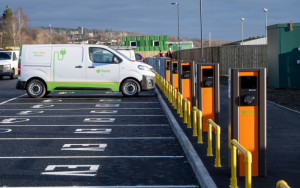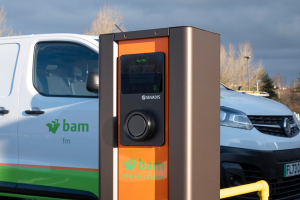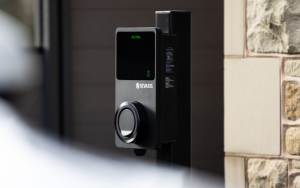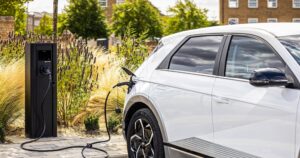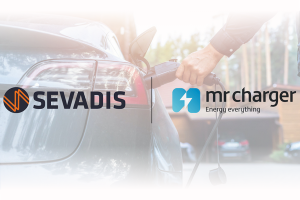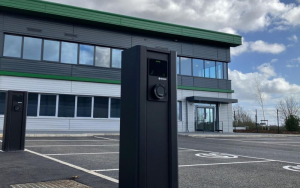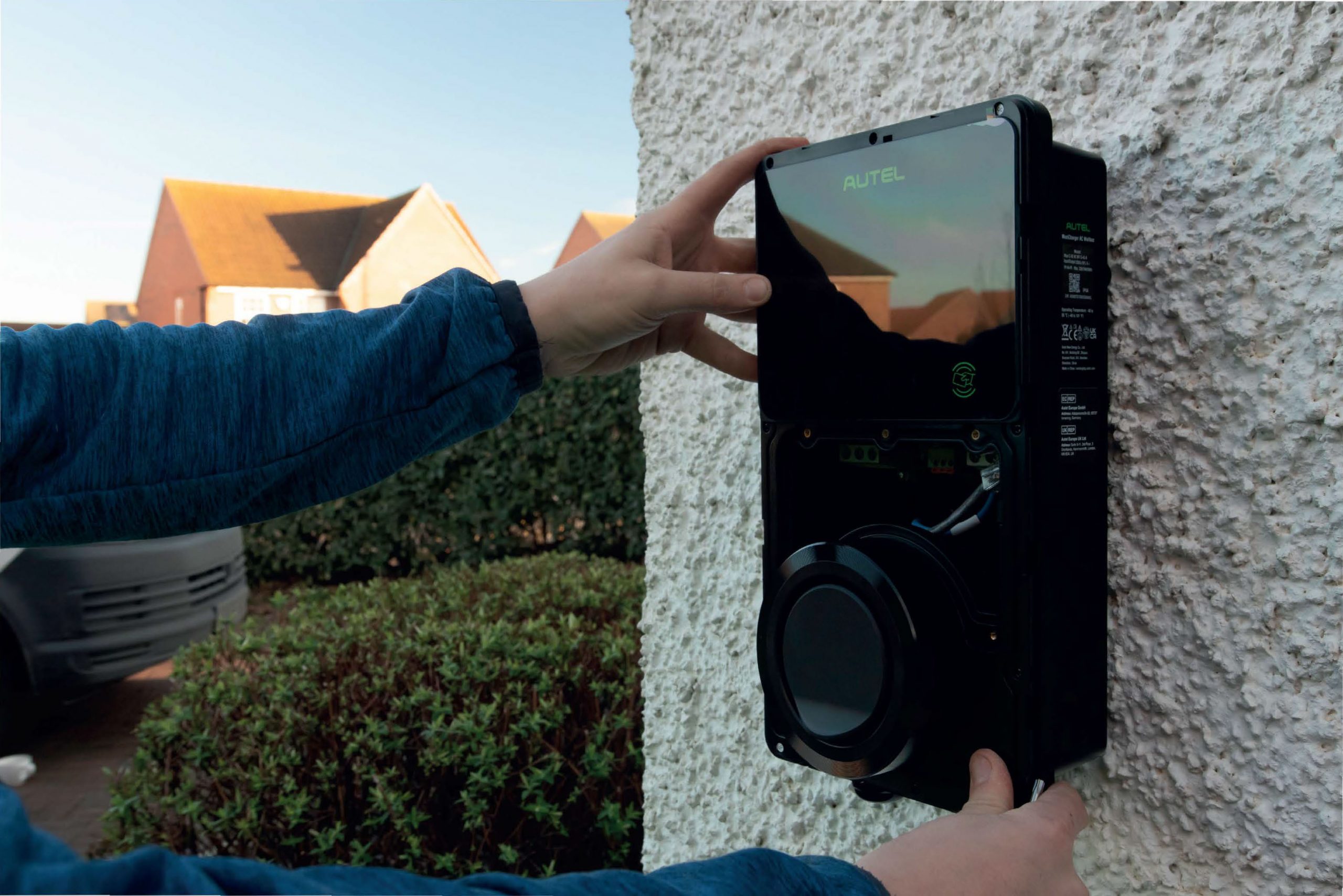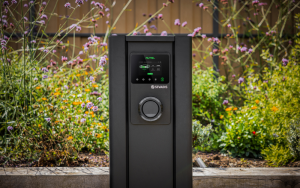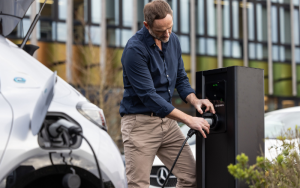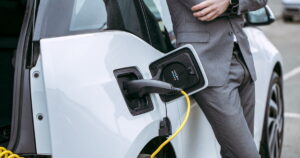Latest Articles
OZEV Grants for EV Charging Covered
Latest Articles
OZEV Grants for EV Charging Covered
Electric vehicles (EVs) are not just transforming the way we drive; they are reshaping the landscape of sustainability and innovation. As the world steers towards a greener future, the importance of a robust electric vehicle charging infrastructure cannot be overstated. Fortunately, the road to a sustainable transportation ecosystem is paved with support, and one key driver is the availability of grants made accessible by the UK government.
In this blog post, we delve into the world of electric vehicle charging grants, shedding light on the opportunities available to both businesses and individual EV drivers. From empowering businesses to install charging stations to easing the financial transition for those embracing electric mobility, these grants play a pivotal role in accelerating the adoption of EVs.
Join us as we navigate the incentives, explore the financial support systems, and uncover the latest updates in the realm of EV charging grants. Whether you’re a forward-thinking business eyeing a green transformation or an EV enthusiast eager to contribute to a sustainable future, this post is your gateway to understanding the dynamic landscape of EV charging grants.
In this blog post, we cover:
- EV charge point grant for renters and flat owners.
- EV charge point and infrastructure grant for business staff and fleet car parks.
- EV charge point and infrastructure grant for landlords, including car parks.
- Workplace Charging Scheme (known as the WCS).
EV charge point grant for renters and flat owners
An electric vehicle (EV) charge point grant can help towards the cost of installing an electric vehicle charge point socket at your property.
You can get 75% off the cost to buy and install a socket, up to a maximum of £350.
You can apply for this grant if you either:
- own and live in a flat
- rent any residential property (this includes properties under the shared ownership scheme)
Eligibility
To qualify for this grant you need to meet the following requirements.
Vehicle requirements
This grant is only for vehicles on the list of OZEV-approved electric vehicles.
The following people are eligible to access the grant:
- individuals who become registered keepers of a new or second-hand eligible electric vehicle – the registered keeper is not necessarily the owner of a vehicle, but the person responsible for the car that pays for road tax and MOT
- individuals who are assigned a company car
- individuals who lease an eligible vehicle
- individuals who are named, by their employer, as the primary user of an eligible electric vehicle
- individuals who have ordered an eligible electric vehicle
Vehicle leases
If your vehicle lease is a bundle with a charge point, it must:
- state that you own the charge point once payment is complete
- itemise the cost of the charge point and installation, including VAT
- ensure the charge point warranty meets the grant requirements
- ensure the associated vehicle lease is for at least 6 months
You must show your installer proof that you own or lease your electric vehicle.
Property requirements
This grant is for domestic properties only.
The property must be either:
- a flat (a single unit property in a multi unit building) – the applicant living in it may be the owner or renter of the flat
- a single unit property that is rented in its entirety, including multiple occupancy properties – where the applicant’s tenancy is defined by a rental agreement
Properties rented through the shared ownership scheme are eligible.
The grant cannot be given if the installation of the charge points and / or infrastructure was a mandatory requirement.
You must be a resident at the property.
For rental properties you cannot live with the landlord/ homeowner.
Any necessary third-party permissions, such as from a landlord or freeholder or managing agent of a block of flats, must be obtained before an installation occurs.
The property must be located in England, Wales, Scotland or Northern Ireland. If your property is in the Channel Islands or the Isle of Man, it is not eligible.
Dedicated off-street parking
The property must have designated, private off-street parking. This may be co-located with the property or separate from it. Where the parking is separate, you must be able to demonstrate that you have a legal entitlement to the parking space.
The parking must be suitable for a charge point installation (a survey before installation must be conducted by the installer). The parking must be able to permit an eligible vehicle to be charged safely. You must be able to access the parking space at all times.
OZEV-approved
You must use OZEV-approved installers and charge point models.
People who cannot apply
You cannot apply if you:
- have already claimed for the grant or its predecessors – the Electric Vehicle Homecharge Scheme (EVHS) or the Domestic Recharge Scheme
- are moving house or planning on moving
- want a new charge point, even if a new car is not compatible with the current one
- want to move an existing charge point to a new property
- live in a house that you own (not a flat that’s part of a house)
The funding of this grant has been confirmed until 31st March 2025.
EV charge point and infrastructure grant for business staff and fleet car parks
This grant is for small and medium-sized businesses.
An EV infrastructure grant gives you money off the cost of wider building and installation work that’s needed to install multiple charge point sockets.
The work can be for sockets you want to install now and in the future. For example, an EV infrastructure grant can cover things like wiring and posts.
The grant covers 75% of the cost of the work, up to a maximum of £15,000. You can get:
- up to £350 per charge point socket installed
- up to £500 per parking space enabled with supporting infrastructure
You can receive up to 5 grants across 5 different sites.
Eligibility
You can apply for the electric vehicle (EV) infrastructure grant if you’re a business with 249 employees or fewer.
You must be either registered at Companies House or VAT registered with HMRC.
Property requirements
Your property must be in the UK. You cannot apply for this grant if the property is in the Channel Islands or Isle of Man.
The charge point can only be used by the building’s staff and vehicles. It cannot be used by members of the public.
You must install at least one charge point socket as part of the work
You must carry out work on at least 5 parking spaces, so they either have charge point sockets or are ready to have them installed in the future.
Parking requirements
Each parking space must be:
- off-street, private and clearly defined – it does not have to be part of the property
- owned by you, or be one you have the legal right to
OZEV-approved
You must use OZEV-approved installers and charge point models:
State aid/subsidy control
Your business must satisfy state aid requirements. It must have received, or have pending, less than the £315,000-limit minimal financial assistance (MFA) or €200,000 of public support in the past 3 financial years, including the current year.
Read separate guidance about state aid requirements.
Mandatory charge point or infrastructure requirement
The grant cannot be given if the installation of the charge points and / or infrastructure was a mandatory requirement. This includes:
- buildings under construction or being renovated where the Part S Regulations applies on or after 15 June 2022 (for England), for example, for single domestic dwellings with an associated parking space and for non-residential buildings with more than 10 car parking spaces
- devolved countries where there are similar regulations as for England, for example, the Building (Scotland) Regulations from 5 June 2023
- where there was a planning application condition mandating the installation of charge points and/or infrastructure
Installers are advised to check with their customers that the proposed installation is not a mandatory requirement.
Fire safety measures
As the property owner or manager, you must:
- assess potential fire risks
- be ready to act on the risk assessment and put in place and maintain appropriate fire safety measures
You must ensure that these measures are maintained.
The funding of this grant has been confirmed until 31st March 2025.
EV charge point and infrastructure grant for landlords, including car parks
There are two grants you can get for installing charge points for electric vehicles at a property you own.
Electric vehicle (EV) charge point grant
An EV charge point grant gives you money off the cost of installing an electric vehicle charge point socket.
You can get 75% off the cost to buy and install a socket, up to a maximum of £350 per socket.
You can receive up to 200 grants a year for residential properties, and a further 100 for commercial properties.
Electric vehicle (EV) infrastructure grant
An EV infrastructure grant gives you money off the cost of wider building and installation work that’s needed to install multiple charge point sockets. The work can be for sockets you want to install now and in the future. For example, an EV infrastructure grant can cover things like wiring and posts.You can get 75% off the cost of the work up to a maximum of £30,000. The amount depends on how many parking spaces the work covers.
You can get:
- up to £350 per charge point socket installed
- up to £500 per parking space enabled with supporting infrastructure
You can receive up to 30 grants each financial year for installing infrastructure in residential carparks. You cannot apply for the infrastructure grant if you’re a commercial landlord.
Eligibility
Mandatory charge point or infrastructure requirement
The grant cannot be given if the installation of the charge points and/or infrastructure was a mandatory requirement. This includes:
- buildings under construction or being renovated where the Part S Regulations applies on or after 15 June 2022 (for England), for example, for single domestic dwellings with an associated parking space and for non-residential buildings with more than 10 car parking spaces
- devolved countries where there are similar regulations as for England, for example, the Building (Scotland) Regulations from 5 June 2023
- where there was a planning application condition mandating the installation of charge points and/or infrastructure
Installers are advised to check with their customers that the proposed installation is not a mandatory requirement.
Residential landlords
You can apply for the electric vehicle charge point (EV charge point) or infrastructure (EV infrastructure) grant if you’re a:
- landlord with property to let
- right to manage (RTM) company
- residents’ management company (RMC)
- company or person owning the freehold of a property that is let or leased
- company owning a building’s common areas, including shareholders who are the leaseholders
- property factor in Scotland
- private registered provider of social housing (PRP)
- public sector organisation – for example government departments, local councils, the armed forces or the NHS and emergency services
- charity that manages or owns residential property
- registered social housing provider in England or a registered Property Factor in Scotland
You must be a business either registered at Companies House or VAT registered with HMRC. You must use OZEV approved installers and charge points – see the ‘How to apply’ section of this guide for more information.
Commercial landlords
You or the organisation you represent are a commercial landlord if you own or manage property that’s leased or let to a business that pays business rates. You cannot apply for the infrastructure grant if you’re a commercial landlord.You can apply for an electric vehicle charge point grant if you’re:
- an individual with commercial property to let
- a company that owns the freehold of a commercial property
- a company that owns a commercial property’s common areas, with shareholders who are the leaseholders
The charge point can only be used by the building’s staff and vehicles. It cannot be used by members of the public.
Property requirements
Your property must be in the UK. You cannot apply for this grant if you live in the Channel Islands or Isle of Man. You can apply for:
- flats and houses
- apartment blocks
- commercial properties
If you’re letting out a commercial property, the charge point can only be used by the building’s staff and vehicles. It cannot be used by members of the public.
You cannot apply if:
- you live in the property
- you only rent your property out as a holiday rental
- you do not have a company registration number or a VAT registration number
- you’re installing a charge point because of a mandatory requirement
Your parking space
Each parking space you’re applying to install a charge point at must be:
- off-street, private and clearly defined – it does not have to be part of the property
- accessible to your tenant
- owned by you, or be one you have the legal right to – you may need to provide a Land Registry title register as evidence
Extra requirements for an EV infrastructure grant
If you’re applying for an EV infrastructure grant, you must:
- be using it for a property with multiple homes – for example an apartment block, or estate with buildings that share a car park
- be installing at least one charge point socket as part of the work
- carry out work on at least 5 parking spaces, so they either have charge point sockets or are ready to have them installed in the future
The funding of this grant has been confirmed until 31st March 2025.
Workplace Charging Scheme (known as the WCS)
About the scheme
The Workplace Charging Scheme (WCS) is a voucher-based scheme that provides eligible applicants with support towards the upfront costs of the purchase and installation of electric vehicle (EV) charge points.
It is available in England, Wales, Scotland and Northern Ireland, but not in the Channel Islands or Isle of Man.
The scheme is run by the Office for Zero Emission Vehicles (OZEV) and administered by the Driver and Vehicle Licensing Agency (DVLA).
This guidance is aimed at applicants. Guidance for installers and manufacturers is also available.
This grant can be used in conjunction with the EV infrastructure grant for staff and fleets: customer guidance, which helps fund both the installation of charge points and the cost of charge point infrastructure. Both grants may be used for the same site but not the same charge points. Any attempt to claim the same charge point twice by submitting a WCS and EV grant application for the same charge point, may be viewed as fraud. This will result in action being taken against you.
How the scheme works
The WCS is open to businesses, charities and public sector organisations that meet the applicant and site eligibility criteria.
The grant covers up to 75% of the total costs of the purchase and installation of EV charge points (inclusive of VAT), capped at a maximum of:
- £350 per socket
- 40 sockets across all sites per applicant – for instance, if you would like to install them in 40 sites, you will have 1 socket available per site
After applying using the online application form, successful applicants are issued with a unique identification voucher code by email, which can then be given to any OZEV-authorised commercial charge point installer.
Once the charge point(s) have been installed, the authorised installer can claim the grant from OZEV on the applicant’s behalf. The charge point installation must be completed and the voucher claimed within 6 months of the voucher’s issue date. Claims against expired vouchers will not be paid.
Installers must not charge applicants for the grant in advance of payment being made by OZEV. After OZEV reimburses your installer for the value of your voucher, this cost will be discounted from your final invoice.
If you apply for less than 40 sockets, you can submit additional applications in the future until you reach that limit.
The funding of this grant has been confirmed until 31st March 2024.
For more details about the Workplace Charging Scheme, visit: https://www.gov.uk/guidance/workplace-charging-scheme-guidance-for-applicants
To conclude
As we conclude this exploration of the dynamic landscape of EV charging grants for businesses and individual drivers, the resounding message is clear – the journey towards sustainable transportation is fueled by collaboration, innovation, and a shared commitment to a greener future.
For businesses, the opportunity to seize grants and incentives not only translates into financial support but also positions them as pioneers in the electric mobility revolution. Installing charging infrastructure isn’t just a business decision; it’s a strategic investment in a cleaner, more sustainable tomorrow.
On the other side of the cable, individual EV drivers stand to benefit from grants that ease the transition to electric mobility. From home charging solutions to incentives for workplace charging, the support available is designed to make the EV experience seamless, convenient, and economically viable.
View our OZEV grant-approved EV charging points: MaxiCharger – EV Charging Station – Sevadis
Share this post:
Share this post:
More Insights You Might Like
Depot Charging Scheme – Deadline Approaching!
Sevadis urges fleets to secure £1 million in EV charging support before it’s too late With just three weeks to
Enhanced Sevadis back-office improves the EV charging experience
Latest Articles Enhanced Sevadis back-office improves the EV charging experience Latest Articles Enhanced Sevadis back-office improves the EV charging experience
A Powerhouse Collaboration for BAM Charging Solutions & Sevadis
Latest Articles A Powerhouse Collaboration for BAM Charging Solutions & Sevadis Latest Articles A Powerhouse Collaboration for BAM Charging Solutions
5 Reasons Why the MaxiCharger Should be Your Charger of Choice
Latest Articles 5 Reasons Why the MaxiCharger Should be Your Charger of Choice Latest Articles 5 Reasons Why the MaxiCharger
Dynamic Load Balancing Explained
Latest Articles Dynamic Load Balancing Explained Latest Articles Dynamic Load Balancing Explained Dynamic Load Balancing ExplainedElectric vehicle adoption is at
Elevating EV Infrastructure Installations with Mr Charger
Latest Articles Elevating EV Infrastructure Installations with Mr Charger Latest Articles Elevating EV Infrastructure Installations with Mr Charger Elevating EV
Workplace Charging Scheme for Schools
Latest Articles Workplace Charging Scheme for Schools Latest Articles Workplace Charging Scheme for Schools With electrification on the rise and
DC Rapid EV Charging to Drive EV Uptake
Latest Articles DC Rapid EV Charging to Drive EV Uptake Latest Articles DC Rapid EV Charging to Drive EV Uptake
Why You Should Diversify Your Portfolio as an Installer
Latest Articles Why You Should Diversify Your Portfolio as an Installer Latest Articles Why You Should Diversify Your Portfolio as
OZEV Grants for EV Charging Covered
Latest Articles OZEV Grants for EV Charging Covered Latest Articles OZEV Grants for EV Charging Covered Electric vehicles (EVs) are
Understanding OCPP for EV Charging
Latest Articles Understanding OCPP for EV Charging Latest Articles Understanding OCPP for EV Charging What is OCPP?The Open Charge Point
5 Benefits of Installing EV Charging Points in the Workplace
Latest Articles 5 Benefits of Installing EV Charging Points in the Workplace Latest Articles 5 Benefits of Installing EV Charging
Smart EV Charging Regulations Explained
Latest Articles Smart EV Charging Regulations Explained Latest Articles Smart EV Charging Regulations Explained Smart EV Charging Regulations ExplainedFrom 30th
Futureproofing Your Next Housing Development with the MaxiCharger
Latest Articles Futureproofing Your Next Housing Development with the MaxiCharger Latest Articles Futureproofing Your Next Housing Development with the MaxiCharger


